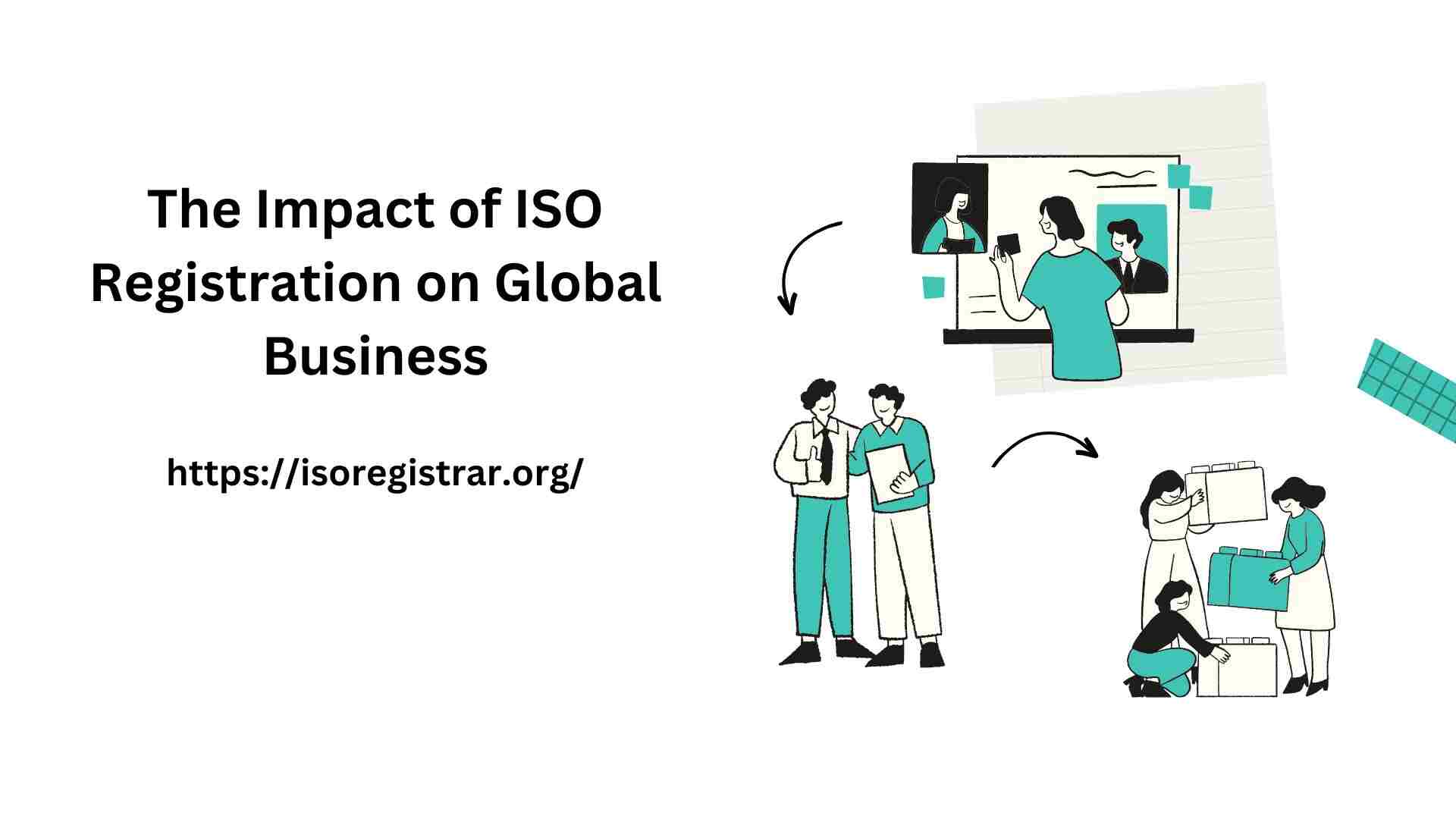


ISO registration, an internationally recognized standard ensures that organizations accept standards of quality, safety, and efficiency.
ISO registration, an internationally recognized standard, plays a pivotal role in shaping global business practices. It ensures that organizations adhere to internationally accepted standards of quality, safety, and efficiency. This certification can profoundly influence a business’s operational effectiveness, market positioning, and overall success. In this article, we will explore the multifaceted impact of ISO certification on global business, focusing on its benefits, challenges, and implications.
ISO certification boosts an organization’s credibility and builds trust with customers, partners, and stakeholders. When a company is ISO certified, it signals that it meets rigorous international standards. This external validation is crucial in a competitive global market where trust is a major driver of business relationships.
ISO certification can be a significant competitive differentiator. Many global markets and industries require ISO certification for suppliers and partners. For example, ISO 14001 for environmental management can be essential for companies wishing to enter markets where environmental regulations are stringent. Similarly, ISO 27001 for information security can be a prerequisite for businesses dealing with sensitive data.
One of the core benefits of ISO certification is the improvement in operational efficiency. ISO standards often involve rigorous processes and continual improvement strategies that lead to streamlined operations. For instance, ISO 50001 for energy management helps organizations optimize energy use, leading to significant cost savings.
ISO certification helps organizations identify and manage risks more effectively. For example, ISO 27001 focuses on information security management, helping businesses protect against data breaches and cyber threats. ISO 22301 for business continuity management ensures that organizations can maintain operations during disruptions.
ISO standards emphasize a customer-centric approach. ISO 9001, for instance, requires organizations to understand customer needs and strive to exceed their expectations. By adhering to these standards, companies can improve product and service quality, leading to higher levels of customer satisfaction. Satisfied customers are more likely to become repeat clients and advocates, contributing to business growth and a positive brand reputation.
ISO certification often involves improving internal processes and practices, which can positively impact employee engagement and morale. For example, ISO 45001 for occupational health and safety ensures a safer working environment, reducing workplace accidents and illnesses. When employees feel safe and valued, their job satisfaction and productivity typically increase. Moreover, the structured nature of ISO standards can provide employees with clear guidelines and roles, contributing to a more organized and motivated workforce.
ISO certification fosters a culture of continual improvement. ISO standards require organizations to regularly review and enhance their processes, products, and services. This focus on continual improvement encourages innovation and adaptation, helping businesses stay ahead in a rapidly changing global market. For example, ISO 9001’s emphasis on quality management drives companies to innovate their processes and products to meet evolving customer needs.
ISO certification ensures consistency and standardization across global operations. For multinational companies, ISO standards provide a unified framework that ensures all branches and subsidiaries adhere to the same high standards. This consistency is crucial for maintaining quality and efficiency across diverse markets and regions.
ISO certification can significantly enhance a company’s reputation and brand value. Being ISO certified demonstrates a commitment to quality, safety, and environmental responsibility, which can positively impact brand perception. This enhanced reputation can attract new customers, retain existing ones, and differentiate the company from competitors.
While ISO certification offers numerous benefits, it also presents challenges. Achieving and maintaining ISO certification requires a commitment of time, resources, and effort. Organizations must invest in training, process development, and regular audits. Additionally, the process of obtaining certification can be complex and may require changes to existing practices. However, the long-term benefits of improved operational efficiency, market access, and enhanced reputation often outweigh these challenges.
Note: Apply for iso 9001 certification through the iso portal
ISO certification has a profound impact on global business, influencing various aspects of organizational performance and market positioning. By enhancing credibility, improving operational efficiency, and fostering a culture of continual improvement, ISO standards contribute to a company’s success in the competitive global marketplace. While the certification process involves challenges, the advantages—ranging from increased customer satisfaction to enhanced brand value—make it a valuable investment for businesses aiming to thrive on the global stage.
